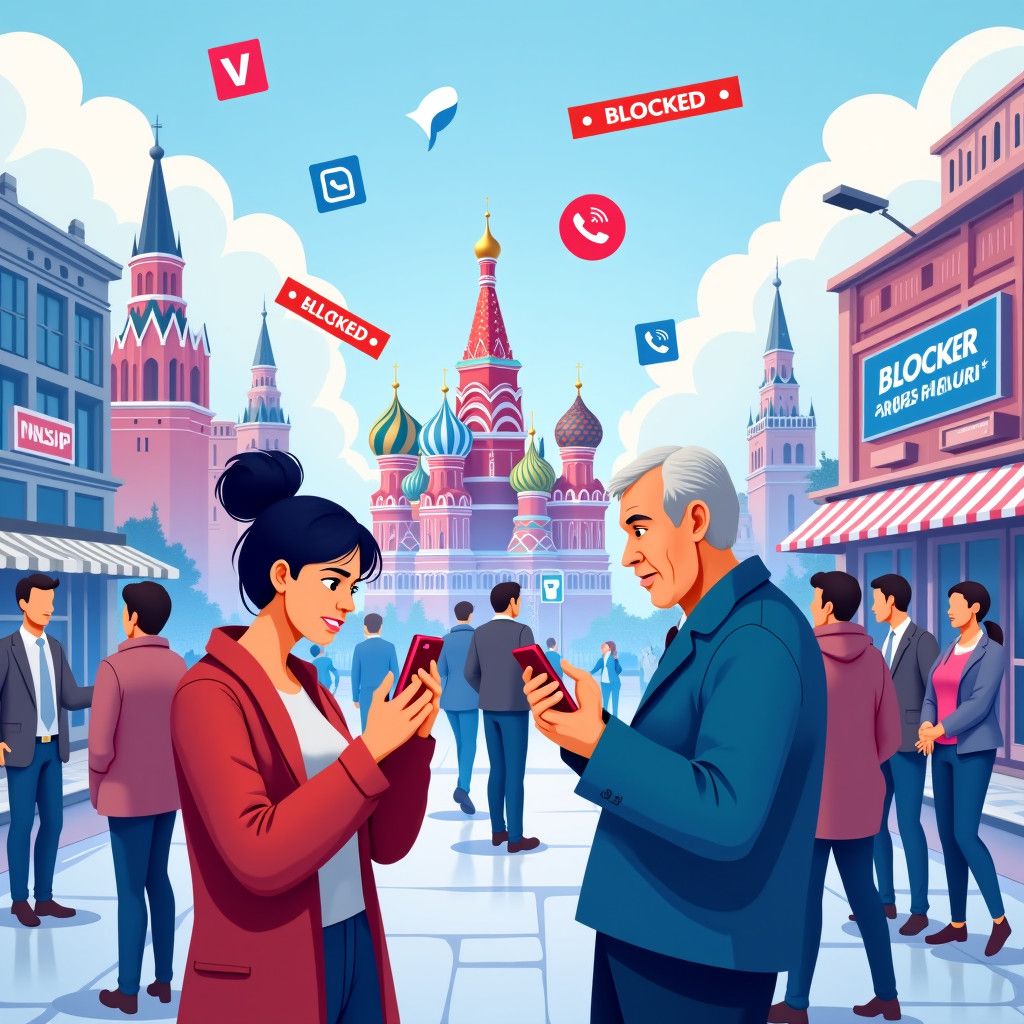In December 2024, Russia made headlines when authorities announced the blocking of the popular messaging application Viber. This significant move is tied to the government’s broader strategy aimed at controlling digital communication, raising crucial questions about implications for business operations and personal communication within the country.
Viber, a service used widely for instant messaging and voice calls, has become an essential tool for many businesses and individuals. Its popularity stems from its user-friendly interface, diverse functionality, and ability to facilitate real-time communication. The Viber app boasts over 1 billion downloads globally, providing users with not just messaging capabilities, but also features such as video calls and group chats, which have made it a staple in both personal and professional settings.
However, the Russian government’s decision to block Viber stems from accusations of failing to comply with local laws designed to prevent terrorism and extremism. This initiative is part of a growing trend of digital censorship in the country. In recent years, Russia has tightened its grip on social media platforms and messaging services, leading to the suspension or outright bans of several international apps that do not meet regulatory requirements. The government justifies these measures by claiming they are necessary for national security, but critics argue such actions stifle free speech and hinder open communication.
The consequences of Viber’s blockage extend far beyond mere inconvenience for its users. Businesses that rely on Viber’s instant messaging service for communication face challenges in maintaining operational efficiency. For instance, international enterprises with Russian branches may find it increasingly difficult to coordinate with teams based in the country.
Additionally, the interruption of communication channels may lead to increased operational costs. Companies might need to invest in alternate messaging solutions or new software tools that comply with Russian regulations. Furthermore, the lack of reliable communication can impact project management, lead to misunderstandings among team members, and disrupt customer service.
In terms of customer engagement, businesses that use Viber to interact with clients may see a decline in their ability to maintain customer relationships. Many companies leverage Viber for marketing purposes, utilizing its capabilities to send promotional messages and provide customer support. With this avenue now blocked, businesses must seek out alternative methods to engage with their audience, potentially losing vital connections.
On a broader scale, the blockage of Viber reflects a worrying trend of increasing government control over digital communication. Such measures not only affect how businesses operate but also how individuals communicate daily. With various messaging apps now either restricted or banned, Russian citizens may face limitations on their ability to express views freely or connect with others in a professional or personal capacity.
The loss of Viber is particularly notable considering the inclination of young people, often seen as tech-savvy, to utilize these platforms for both social and work-related interactions. As they encounter hurdles in accessing preferred applications, the likelihood of them turning to less secure or less popular platforms grows, raising questions regarding privacy and digital safety.
Moreover, these restrictions may have long-lasting repercussions for Russia’s digital economy. By denying citizens access to internationally recognized communication tools, the government risks alienating foreign investors, who might hesitate to engage with a market that imposes stringent regulations on digital networks. The innovation ecosystem could also suffer, as startups and tech developers find it harder to establish communication channels that encourage collaboration and idea exchange.
In conclusion, the blocking of Viber in Russia is an alarming reminder of the impact that government policies can have on technological advancement and business operations. Organizations must now confront an uncertain landscape, navigate potential pitfalls, and adapt to new communication tools. The challenge lies not only in managing current operations but also in advocating for a more flexible digital environment that promotes freedom of speech and interaction. As this episode unfolds, all eyes will remain on Russia, watching to see how it balances security concerns with the inevitable need for open communication in a digitally connected world.












